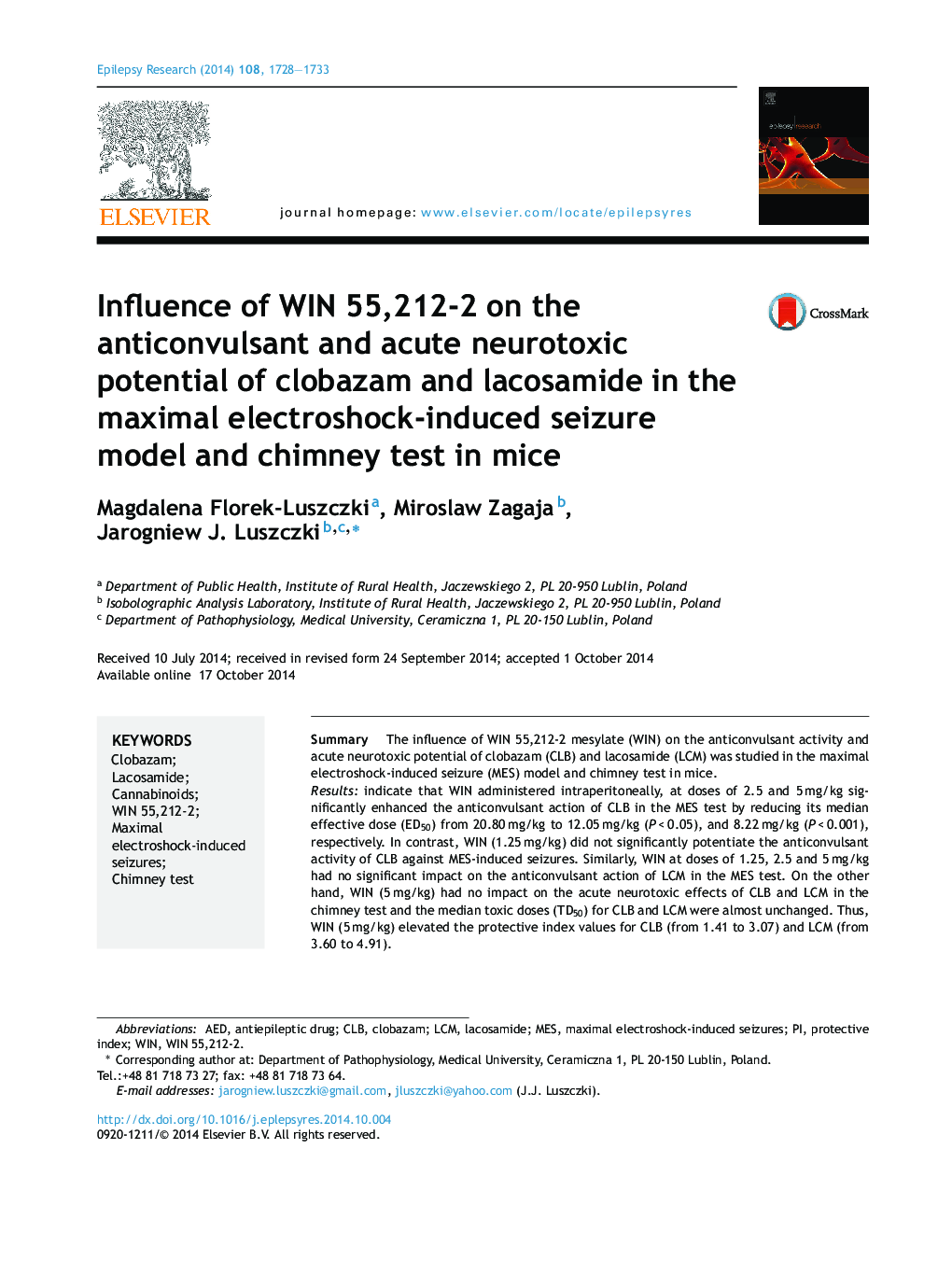| Article ID | Journal | Published Year | Pages | File Type |
|---|---|---|---|---|
| 6015503 | Epilepsy Research | 2014 | 6 Pages |
â¢WIN potentiates the anticonvulsant action of clobazam in the MES test in mice.â¢WIN has no impact on the antiseizure action of lacosamide in the MES test.â¢WIN does not affect acute neurotoxic effects of clobazam in the chimney test.â¢WIN has no impact on acute neurotoxic effects of lacosamide in the chimney test.â¢WIN increases protective index values for clobazam and lacosamide in mice.
SummaryThe influence of WIN 55,212-2 mesylate (WIN) on the anticonvulsant activity and acute neurotoxic potential of clobazam (CLB) and lacosamide (LCM) was studied in the maximal electroshock-induced seizure (MES) model and chimney test in mice.Resultsindicate that WIN administered intraperitoneally, at doses of 2.5 and 5Â mg/kg significantly enhanced the anticonvulsant action of CLB in the MES test by reducing its median effective dose (ED50) from 20.80Â mg/kg to 12.05Â mg/kg (PÂ <Â 0.05), and 8.22Â mg/kg (PÂ <Â 0.001), respectively. In contrast, WIN (1.25Â mg/kg) did not significantly potentiate the anticonvulsant activity of CLB against MES-induced seizures. Similarly, WIN at doses of 1.25, 2.5 and 5Â mg/kg had no significant impact on the anticonvulsant action of LCM in the MES test. On the other hand, WIN (5Â mg/kg) had no impact on the acute neurotoxic effects of CLB and LCM in the chimney test and the median toxic doses (TD50) for CLB and LCM were almost unchanged. Thus, WIN (5Â mg/kg) elevated the protective index values for CLB (from 1.41 to 3.07) and LCM (from 3.60 to 4.91).In conclusion, WIN potentiates suppression of tonic-clonic seizures produced by CLB in the mouse MES model, without affecting acute neurotoxic adverse effects of CLB in the chimney test in mice, which is favorable from a preclinical point of view.
